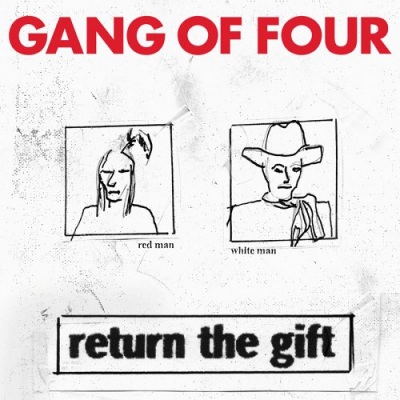
Return the Gift
by Andy Kellman Why let others reheat your back catalog when you can do it yourself? Maybe that's one of the questions Gang of Four asked themselves before recording Return the Gift, a self-tribute album involving re-recordings of their earliest and best work. While the reunion of the original members synched up with the popularity of several bands that were appropriating some of their ideas, one of the greater music-related motivators behind this release was...wait for it...correcting the drum sound. Drummer Hugo Burnham likened the drum sound on those releases to that of cardboard boxes, and some of the other members seemed to harp on it as well, in addition to regretting that the records never reflected their live sound, despite the nagging specters of greater imperfections in their past. To pick one imperfection out of thin air, the sound of 1991's Mall -- the entire thing, not just the drums or the awkward Bob Marley cover -- can be likened to a deflating whoopie cushion. More crucially, there has rarely been any dispute about the magnificence of the 1979-1982 releases, so it's not as if thousands, or hundreds, or even dozens of Gang of Four freaks spent the past 20 years pining for something like Return the Gift. But here it is anyway, and it's very loud, and it comes across like a mostly live album played in an empty meat locker. Like Wire (who re-recorded old material as well, but released it in a very limited form and then went on to make an album of new songs), the early-2000s version of Gang of Four is more caustic than ever. There are moments when the band seems as temperamental and charged as a downed power line. Burnham's drums do have greater presence, but that correction is evened out by some stiffness on everyone's part. While Gang of Four once thrived on a form of willful stiffness, they remained supremely limber, which is something that doesn't translate as much here -- it's not hard to imagine the band recording these versions in a cold room while wearing restrictive winter clothing. (Alright, being 25 years older might have something to do with the decreased agility.) One thing that remains unchanged, to no surprise whatsoever, is the enduring vitality of the material. The songs, concerning the politics of both self and societal interest, make as much sense today as they did when they were originally recorded and released. They also contain some of the most startling sounds you will ever hear.
